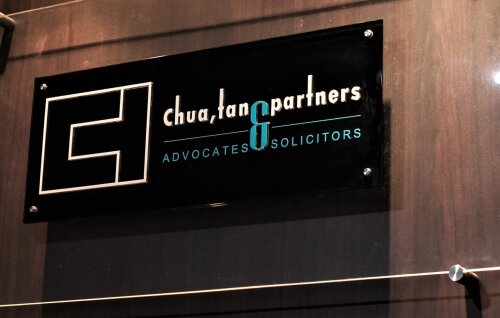Best Creditor Lawyers in Kuala Lumpur
Share your needs with us, get contacted by law firms.
Free. Takes 2 min.
List of the best lawyers in Kuala Lumpur, Malaysia
About Creditor Law in Kuala Lumpur, Malaysia
Creditor law in Kuala Lumpur, Malaysia deals with the rights and remedies of individuals and businesses who have unpaid debts owed to them. It governs the process of collecting outstanding debts and ensures that both creditors and debtors are treated fairly.
Why You May Need a Lawyer
There are several situations where you may need the assistance of a lawyer who specializes in creditor law:
- If you are a creditor and need assistance with debt collection, negotiation, or litigation.
- If you are a debtor facing legal action from a creditor and need guidance on your rights and options.
- If you are involved in bankruptcy proceedings and need legal representation.
- If you have questions about your rights and obligations as a creditor or debtor.
Local Laws Overview
Here are some key aspects of local laws that are particularly relevant to creditor matters in Kuala Lumpur, Malaysia:
- Contracts Act 1950: The Contracts Act governs the formation and enforcement of contracts, which are often at the core of creditor-debtor relationships.
- Bankruptcy Act 1967: This act outlines the process and procedures for declaring bankruptcy and dealing with insolvent debtors.
- Limitation Act 1953: The Limitation Act sets out the time limits within which legal action can be taken for the recovery of debts.
- Insolvency Act 1967: This act provides the legal framework for restructuring and rehabilitating financially distressed companies and individuals.
Frequently Asked Questions
Q: Can creditors take legal action to recover unpaid debts?
A: Yes, creditors can take legal action by filing a civil suit against the debtor. Legal proceedings can result in judgments or court orders for the repayment of debts.
Q: How long do I have to file a lawsuit to recover a debt?
A: The Limitation Act sets a time limit of 6 years from the date the debt became due for legal action to be taken. After that period, the claim may be barred by law.
Q: Can a debtor challenge a debt claimed by a creditor?
A: Yes, debtors can challenge a debt claimed by a creditor if they believe the debt is unjust or incorrect. They have the right to dispute the debt and request proof of its validity.
Q: What are the consequences of bankruptcy for debtors?
A: Bankruptcy can have significant consequences for debtors, including the loss of assets, restrictions on financial activities, and an impact on creditworthiness. Seeking legal advice is crucial for understanding the implications.
Q: How can I find a reputable creditor lawyer in Kuala Lumpur, Malaysia?
A: You can find reputable creditor lawyers in Kuala Lumpur, Malaysia by seeking recommendations from trusted sources, conducting online research, or contacting local bar associations for referrals.
Additional Resources
Here are some additional resources, governmental bodies, and organizations related to creditor law in Kuala Lumpur, Malaysia that can be helpful for someone in need of legal advice:
- Legal Aid Department Malaysia: They provide free legal assistance to Malaysians who meet certain eligibility criteria.
- The Bar Council Malaysia: The official body representing legal practitioners in Malaysia. They can provide information and referrals to qualified creditor lawyers.
Next Steps
If you find yourself in need of legal assistance regarding creditor matters in Kuala Lumpur, Malaysia, take the following steps:
- Assess your situation: Determine whether you are a creditor seeking to collect a debt or a debtor facing legal action.
- Research and gather information: Understand the relevant laws and regulations, and research local lawyers who specialize in creditor matters.
- Consult with a lawyer: Schedule a consultation with a reputable lawyer to discuss your situation, understand your rights, and explore available options.
- Engage legal representation: If necessary, engage a lawyer to handle your case and guide you through the legal process.
- Follow their advice: Follow the advice and instructions provided by your lawyer to protect your interests and navigate the legal proceedings effectively.
Lawzana helps you find the best lawyers and law firms in Kuala Lumpur through a curated and pre-screened list of qualified legal professionals. Our platform offers rankings and detailed profiles of attorneys and law firms, allowing you to compare based on practice areas, including Creditor, experience, and client feedback.
Each profile includes a description of the firm's areas of practice, client reviews, team members and partners, year of establishment, spoken languages, office locations, contact information, social media presence, and any published articles or resources. Most firms on our platform speak English and are experienced in both local and international legal matters.
Get a quote from top-rated law firms in Kuala Lumpur, Malaysia — quickly, securely, and without unnecessary hassle.
Disclaimer:
The information provided on this page is for general informational purposes only and does not constitute legal advice. While we strive to ensure the accuracy and relevance of the content, legal information may change over time, and interpretations of the law can vary. You should always consult with a qualified legal professional for advice specific to your situation.
We disclaim all liability for actions taken or not taken based on the content of this page. If you believe any information is incorrect or outdated, please contact us, and we will review and update it where appropriate.
















